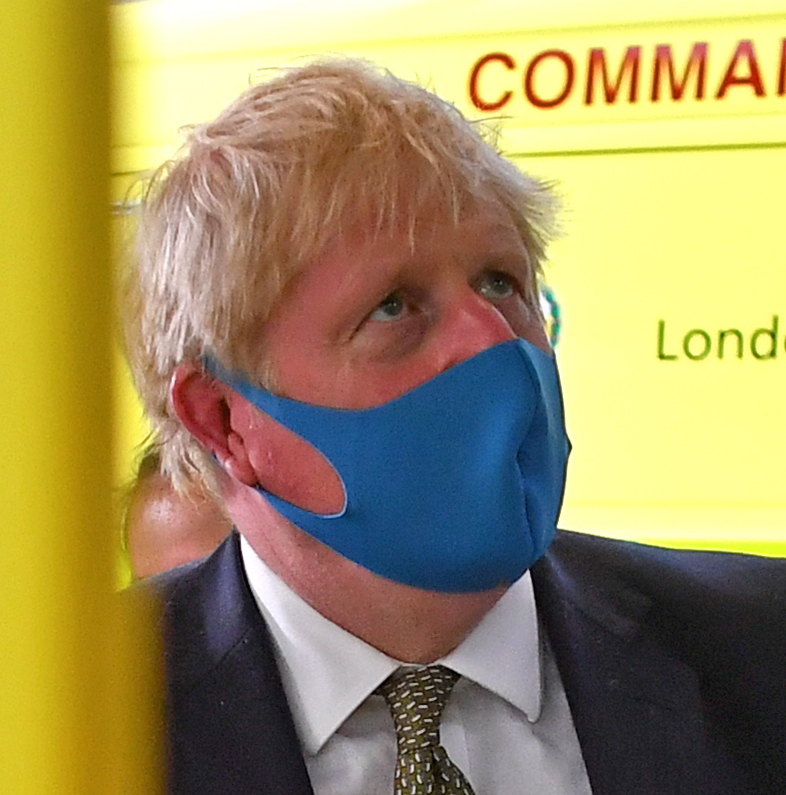Oxford Union style versus the Old Bailey; Bullingdon Boy versus Mr Swotty; Cavalier versus Roundhead; the schoolboy who handed in his impeccable essay on time versus the one whose homework was eaten by the dog, allegedly. All these are apt approximations to the weekly Parliamentary joust between the Prime Minister and the Leader of the Opposition.
The latter, one of the leading criminal prosecutors of his day before he tried his hand at politics, makes potent forensic thrusts with his stiletto questions towards the Eton Old Boy and never-quite-serious newspaper columnist, Boris Johnson, who wafts them away with his rhetorical scutum [Latin for Roman legionnaire’s shield] - a broadside of bluster.
The Cavalier versus Roundhead comparison has more truth to it that might at first appear, not just in term of personality types or appearance - Sir Keir Starmer with his steel-grey helmet of hair versus Boris Johnson's dishevelled mop head. The Roundheads were the military arm of the Parliamentary party who were trying to exert control over the king, who in turn felt this to be a sacrilegious challenge to his divine right to rule. Starmer is upholding the House of Commons' right to scrutinise the Government; Johnson is mindful that he and his ministers are Ministers of the Crown and do not hold office directly at Parliament's say-so. Divine right still casts its shadow, 332 years after the last king to claim it explicitly, James II, was hounded out of his kingdom.
So Johnson's touchy indignation at being interrogated by Starmer on the Government's performance - with an icy tone of "will the accused please now answer the question?" - does have some historical provenance. But it also points to a trickier issue that Starmer himself has to deal with. He who publicly challenges the competence of an army commander while in the heat of battle, and within sight of the troops doing the fighting, has to answer the charge that he is unconsciously helping the other side.
Picking holes in the Government's performance can only weaken the public's confidence that the Government knows what it is doing. Yet confidence is central to what the Government is trying to achieve, both with regard to the coronavirus epidemic and with regard to the economic recovery it wants to orchestrate. People are genuinely scared of this disease - partly because, at the outset, that is what the Government wanted them to feel - and if they are to go shopping, turn up for work, or send their children to school, they will only do so if they feel safe. That means trusting the Government to know what it is doing. The constant message of Starmer's cross questioning week by week is that the Government just doesn't. And my own view is that Starmer wins these contests six-nil every time.
Now if that were to lead to this Government stepping aside, to let another more competent one take over, then Opposition strategy would begin to make sense. But there is really no chance of that. The only real justification for maintaining a barrage of criticism of the Government's handling of things is if that criticism forces the Government to raise its game. Criticism for the sake of demonstrating to those watching that the Government is not doing its job properly is in terms of the national interest actually harmful - if it does not lead to a better performance. The next general election is too far ahead for events in the summer of 2020 to have any lasting impact.
Except that there is another so far marginal effect: the Conservatives begin to see Starmer as a figure worthy of respect, and eventually a credible prime minister. So let us imagine that the policies Johnson wishes to pursue - a Keynesian style explosion of public spending - finally trigger a backlash from the Tory back benches, where Thatcherite goals of a small state and a burgeoning free-market low-tax economy are still dominant.
Already there are mutterings that Johnson is if anything to the left of Jeremy Corbyn on some things. He is intent on undoing many of the things that his Tory predecessors regarded as a core part of the faithful Tory message, and he seems to have a roomful of free-market sacred cows lined up for the slaughter. His guiding guru, Dominic Cummings, is not among the "one-of-us" crowd with which Margaret Thatcher surrounded herself. Boris and his mates are not, in short, Hayekian true believers. The Friedman business model - "the only business of business is business" - really does not appeal to them. Nor to the focus groups to which they regularly turn for guidance. Cummings's opinion of businessmen is much the same as his attitude to politicians and civil servants. That is to say, low. Unless, of course, they are his friends.
In so far as there are any fundamental principles in play behind Government policy, they appear to stem from Michael Gove's respect for Catholic Social Teaching. And CST was manifestly an influence over Roosevelt's New Deal, which both Gove and Johnson have recently been referring to as their model. And Maurice Glasman's name now pops up in discussions of Tory policy. Lord Glasman is a Labour peer and founder of the Blue Labour movement, and though Jewish, he has emerged as a persuasive - though discreet - advocate of Catholic Social Teaching. Indeed he carries a medal from Pope Benedict in his pocket.
The possibility exists therefore, that Johnson, Gove and Cummings could no longer find a majority in the House of Commons from their own backbenchers, and would have to turn to Labour MPs for support in the lobbies. If the medical and economic situation in Britain became much more dire, it is possible that only a coalition Government could find enough public support to continue. And Tory MPs' growing respect for Starmer could make that prospect more likely. In some sense, they already see him as one of their own, an Establishment figure, Queen's Council and Knight of the Realm. And the basis for such a coalition would be not far from Pope Benedict's 2009 encyclical, Caritas in Veritate.
I suspect, however, that the Bullingdon Boy who wanted to be king, the ultimate Cavalier with the Oxford Union manner, would begin to realise that governing was exhausting, and that his own brush with near fatal Covid-19 earlier his year, which must have taken years off his life, had set the stage for an honourable early retirement. And at that point, all bets are off.



 Loading ...
Loading ...
What do you think?
You can post as a subscriber user ...
User comments (1)
If Francis has an Achille's Heel it is his ever-so-noticeable silence on the handling of the clerical sex abuse crisis and the complicity of so much of the hierarchy.
His words have thrilled the world. In this case the world is waiting for actions to prove that he is a walker as well as a talker.